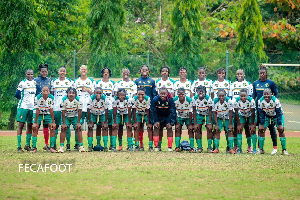Nigerian Islamist group Boko Haram on Monday attacked a Cameroon military camp near the northern town of Waza wounding several soldiers. The Islamists have also staged raids in neighboring Chad and Niger.
Backed by air strikes Nigerian soldiers on Monday (16.02.2015) recaptured two towns from Boko Haram. Meanwhile in neighboring Chad, US and regional troops began war games as part of a growing international campaign to counter the Islamist militant group.
DW spoke to Elizabeth Donelly an expert on Nigeria from Chatham House in London on efforts to contain Boko Haram.
DW: You have just returned from Nigeria. From your assessment is there much political will to fight the insurgents?
Elizabeth Donnelly: This is based not only on my recent visit to Nigeria but also watching the deepening Boko Haram crisis over the years. Clearly because it has gotten worse and there have been problems in responding to it.
One of the arguments has always been that this is a peripheral issue; this area is far away from Abuja, the Federal capital of Nigeria. One of the allegations for failed military operations is that they haven't had the resources or personnel necessary and that the reason for that is a lack of political will regarding this.
However, more recently, the reason given for the postponement of Nigeria's election was a new offensive against Boko Haram.
President Goodluck Jonathan needs bi-partisan support to win the fight against Boko Haram – why is he not reaching out to opposition parties with strong support in areas held by the insurgents?
This is deeply political in many ways. We've seen allegations by both political parties in Nigeria against the other. Either regarding inaction or links with Boko Haram.
This has somewhat become politicized, it is not simply a narrow security crisis. What this means is that bi-partisan support becomes much more complex when there are political interests at stake also.
Will the Nigerian government eliminate Boko Haram within the six weeks it has set before the elections?
There is no way that Boko Haram can be destroyed in six weeks. Even if there is a strong, strategic and well-led offensive. It covers such territory that it would be difficult to reach all of its members.
Furthermore, in the face of a strong military offensive, this includes from regional partners, you are likely to see a scattering of members into neighboring countries and beyond.
If you look back at July 2009 when security operatives responded harshly to the Boko Haram uprising, what was then thought was that Boko Haram had been destroyed.
At this time, they were not particularly a violent organization, not an insurgency in that sense.
But at that time what happened is that the remaining members did scatter, they remembered their grievances and returned with a vengeance in 2010 and escalated their attacks in 2011. That's what we've seen since then. I think the idea that Boko Haram can be wiped out in a matter of weeks is unrealistic given the complexity of this crisis.
The situation is a fluid at the moment; you have Boko Haram increasing attacks in and outside Nigeria while regional forces are increasingly getting involved. It is very fluid.
After the media glare which happened after the Chibok girls' abduction of April 2014, we've seen an increase in escalation of Boko Haram attacks. What we are seeing more of are attempts by Boko Haram to either capture or damage state capitals.
This is a really crucial point for Nigeria because if they capture a capital that would be an enormous win for Boko Haram and a huge loss for Nigeria's territorial integrity – so it really must defend against this.
There have been attacks in Cameroon since last year but now with Chad and Niger entering this fight more actively, we are starting to see Boko Haram taking on a more regional characteristic. This is quiet a danger now. This could be a turning point.
If Chad, Niger and Cameroon do not successfully clamp down and contain Boko Haram and if that is not matched by an effective offensive inside Nigeria by the Nigerian military, we can see Boko Haram evolving into something bigger which for the first time genuinely takes on a regional dimension.
The Islamists have released a statement warning Chad and other regional players not to take part in the conflict: What do you make of that?
Maybe it's because of the new attention the conflict is getting and because of the threat of Chadian troops entering this fight. It may be seeking to sound more on the offensive which might suggest Boko Haram is starting to feel somewhat squeezed.
What the coming weeks are going to show with more regional force being used is the real capacity of Boko Haram in terms of fighting and also in terms of its strategy. It is possible that we will see Boko Haram's weaknesses.
Elizabeth Donnelly is Assistant Head and Research Fellow, Africa Program at Chatham House in London
Interviewer: Abu-Bakarr Jalloh
Actualités of Tuesday, 17 February 2015
Source: dw.de













